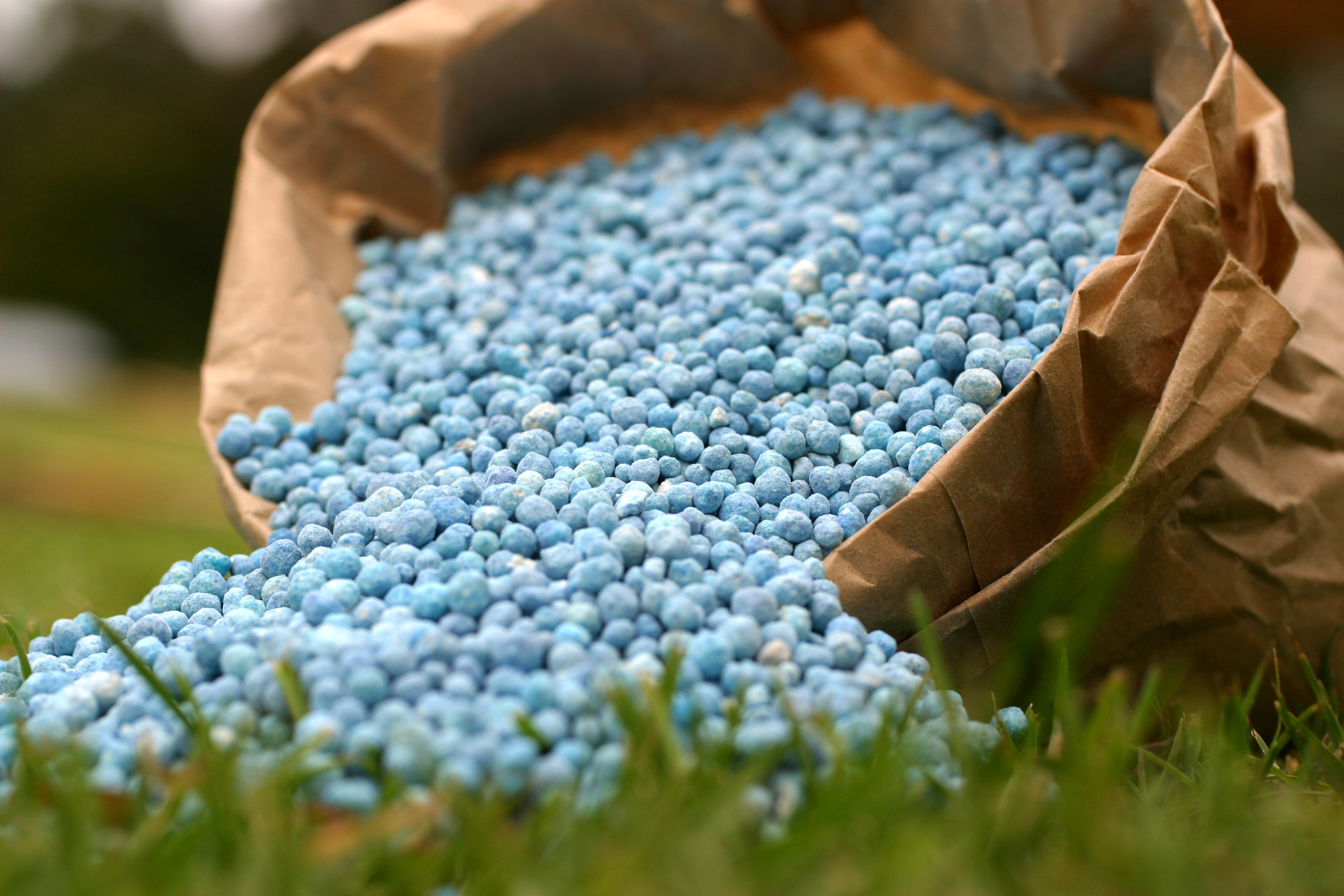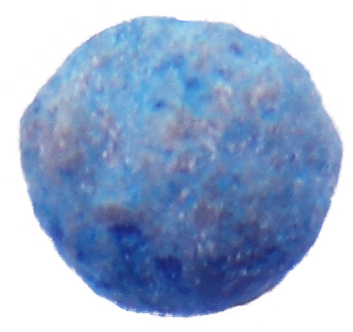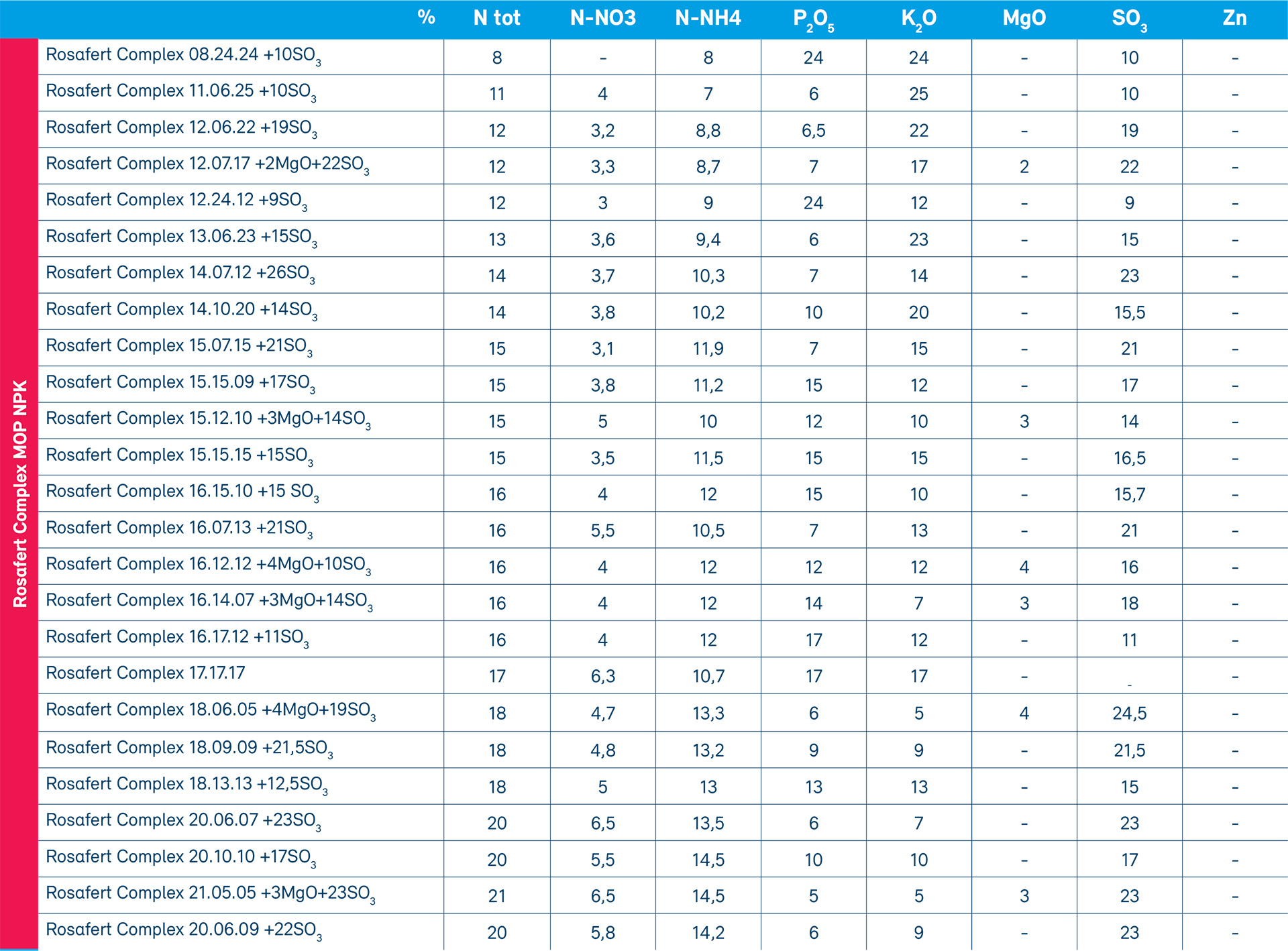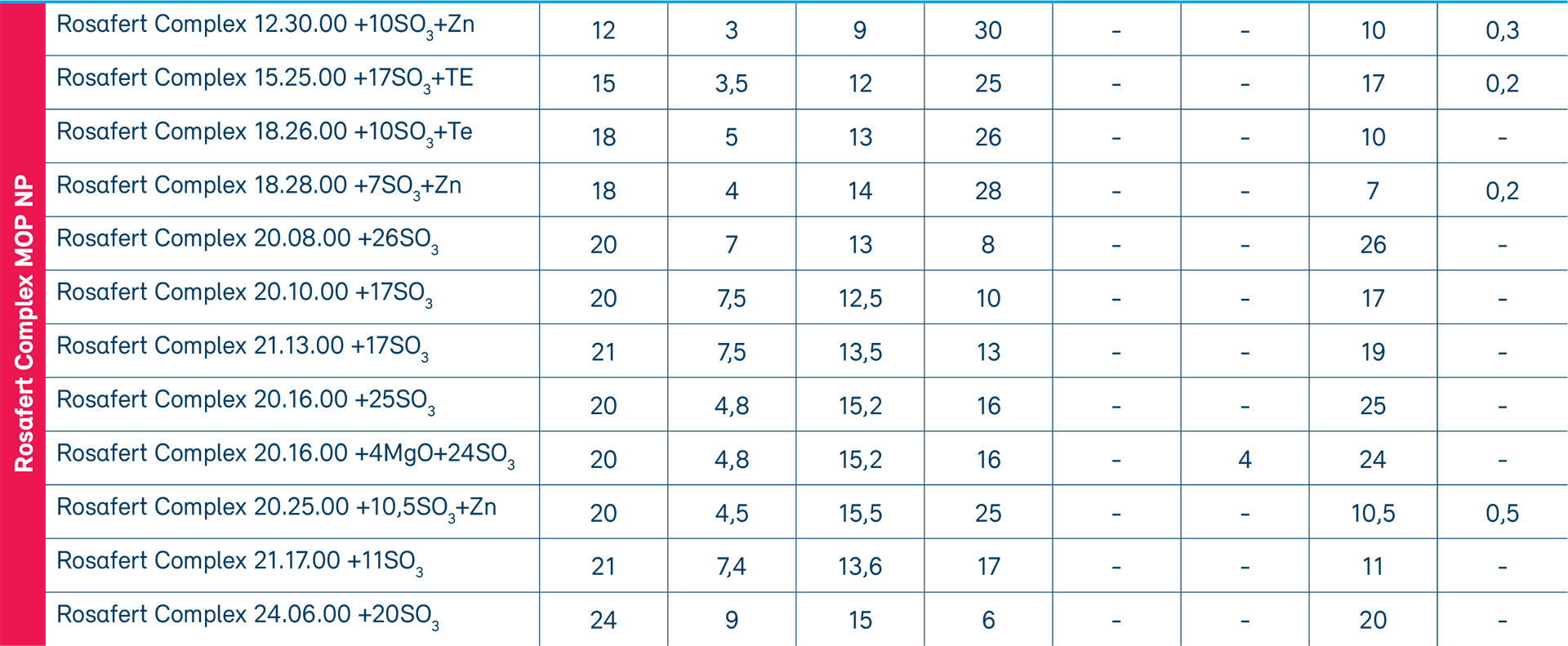.png)
N
Nitrogen: mandatory for amino acids and protein synthesis. Can be found under nitric or ammoniacal form into our granulars.
P
Phosphorus: important for the structure of the plant tissue, genetics and energetic molecules. Weakly mobile into the soil.
K
Potassium: beneficial for fruit formation and storage organs (roots or tubers). Availability linked to clay layers and also climatics conditions.
Ca
Calcium: soil structure, cell division and fruit quality.
Mg
Magnesium: central atom of Chlorophylle, the catalystor of Photosynthesis.
S
Sulfur: protein synthesis. Important for crops that are growing early in the spring, when the mineralization is slow.
B
Boron: acts in numerous processes such as pollen making, nutrient assimilation, and plant health.
Cu
Copper: acts in numerous processes such as pollen making, nutrient assimilation, and plant health.
Fe
Iron: acts in numerous processes such as pollen making, nutrient assimilation, and plant health.
Mn
Manganese: acts in numerous processes such as pollen making, nutrient assimilation, and plant health.
Mo
Molybdenum: acts in numerous processes such as pollen making, nutrient assimilation, and plant health.
Zn
Zinc: acts in numerous processes such as pollen making, nutrient assimilation, and plant health.


.png)




